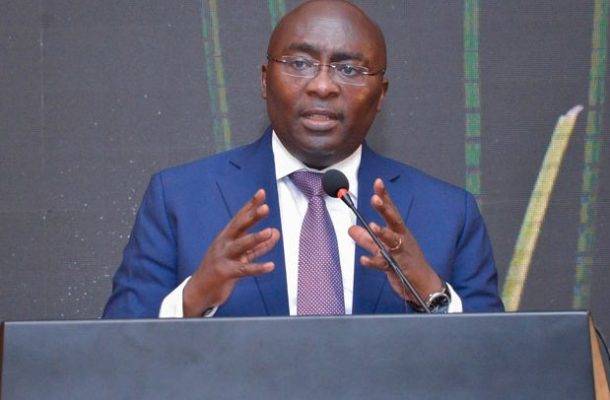Ghana to stop using dollars to buy oil on international market next year - VP Bawumia
Ghana has announced that it will, from March next year 2023, stop using dollars to import refined petroleum products.
Instead, the West African nation plans to use gold, which is one of its export products, to exchange for oil in a form of barter trade on the international market.
The move is to stem the mad rush for dollars by oil importers, which has put pressure on the local currency, the cedi, to depreciate about 64 per cent since the beginning of 2022.
Ghana’s Vice President Dr. Mahamudu Bawumia, who gave a hint of the Akufo-Addo’s administration new plan on his Facebook page, wrote: “The demand for foreign exchange by oil importers in the face of dwindling foreign exchange reserves results in the depreciation of the cedi and increases in the cost of living with higher prices for fuel, transportation, utilities, etc.”
Fuel prices shot up on the local market, with a litre of diesel selling at Gh¢23 while petrol sold at Gh¢17.99 per litre.
The hikes in fuel prices triggered increases in food prices and transport fares, pushing Ghanaians to groan.
To address this challenge, Dr Bawumia said, “Government is negotiating a new policy regime where our gold (rather than our US dollar reserves) will be used to buy oil products.
“The barter of sustainably mined gold for oil is one of the most important economic policy changes in Ghana since independence. If we implement it as envisioned, it will fundamentally change our balance of payments and significantly reduce the persistent depreciation of our currency with its associated increases in fuel, electricity, water, transport, and food prices. This is because the exchange rate (spot or forward) will no longer directly enter the formula for the determination of fuel or utility prices since all the domestic sellers of fuel will no longer need foreign exchange to import oil products.
“The barter of gold for oil represents a major structural change,” he said.
Contributing to discussions of the issue on Joy News, a local radio station in Accra, Ghana’s capital, a Deputy Minister for Energy, Dr Mohammed Amin Adam said Ghana has enough gold in its reserve to exchange for oil to reduce the current skyrocketing prices of fuel.
“Gold mobilisation and gold purchases are everyday activities. And so we have looked at the market and the Bank of Ghana is already buying gold and they can do 50,000 ounces of gold a month. The PMC [Precious Mining Company] also purchases gold from small-scale miners and they can buy 160,00 ounces every month. And what we need is 205,000 a month.
“And so if you look at our oil bill vis-à-vis the worth of the gold, we can mobilise monthly…there is no doubt that we’ll be able to get the required gold to exchange for the requirement of our petroleum products and so we are very confident that this is a policy we can implement without difficulties,” he said.




No comments yet
Be the first to share your thoughts!